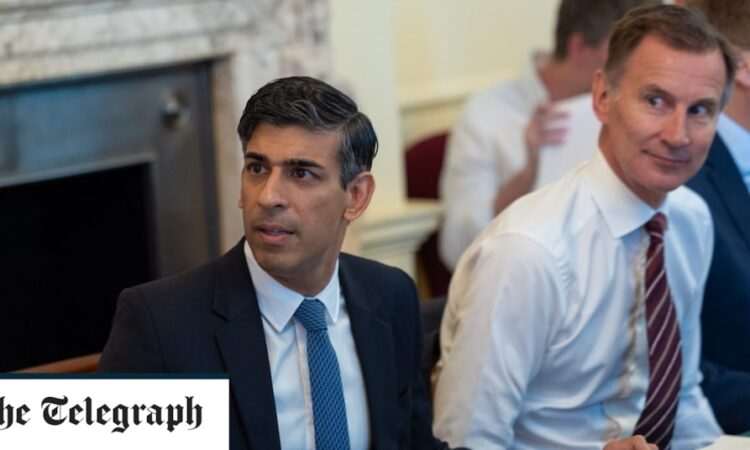
Mortgage rates have soared since late May, with a typical loan from Halifax rising from 4.59pc to 5.41pc – adding almost £100 to the monthly repayments of a homeowner with a £200,000 debt, according to L&C Mortgages.
The Prime Minister’s spokesman told banks to look after customers who were struggling with the jump in costs.
He said: “The Chancellor has made clear his expectation that lenders should live up to their responsibilities and support any mortgage borrowers who are finding it tough right now.”
The spokesman added: “There do remain a large range of mortgage deals available to the public, but we know this current situation may be concerning for some homeowners and mortgage holders.”
Official data on Tuesday showed average earnings jumped at the fastest rate on record last month and unemployment registered a shock fall.
The buoyant jobs market raises pressure on the Bank of England to go further to tackle inflation, which remains more than four times higher than its target.
Expectations of further rate rises sent the yield on two-year gilts as high as 4.9pc, surpassing the peak of 4.65pc reached after Liz Truss’s mini-Budget last September.
Separate Bank of England data showed the property market is already feeling the strain of higher rates.
Mortgage lending fell sharply in the first three months of the year as buyers pulled back in the face of rising costs.
A total of £58.8bn was loaned out to homebuyers, down almost one-quarter compared with the same period of 2022 and the lowest level since the depths of the pandemic lockdown of spring 2020.
Landlords are also taking punishment from the higher rates. Buy-to-let profits have plunged to their lowest level since 2007 as interest rates and a government crackdown on the sector pile pressure on landlords’ finances.
Profit margins for landlords with mortgages fell below 4pc in the first three months of 2023, according to new analysis from Savills estate agents.
This was a significant drop compared with an average profit margin of 23pc between 2014 and 2021.
Andrew Bailey, Governor of the Bank of England, said he is poised to launch a review into what went wrong during the pandemic and its aftermath to cause Britain’s deepening inflation crisis.
Mr Bailey told a committee in the House of Lords: “I do think we have moved into an era where we have had very big supply shocks operating on the economy and on inflation.
“Those call into question what is the right response to that at the time. Did we – this is what we will need to review – did we look at that broadly enough at the time?”
He acknowledged that “we were wrong” to expect a surge in unemployment when the furlough scheme ended, at a time when the Bank was still pumping money into the economy through quantitative easing and had not yet started raising interest rates.
Inflation remains stubbornly high this year amid “hoarding” of workers by bosses who are struggling to find staff to recruit, the Governor said. He also blamed the failure of lower global food prices to translate into cheaper groceries on the shop shelves.






